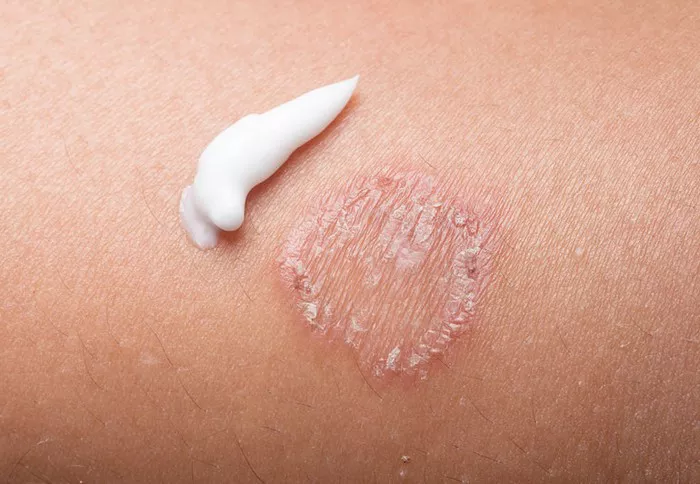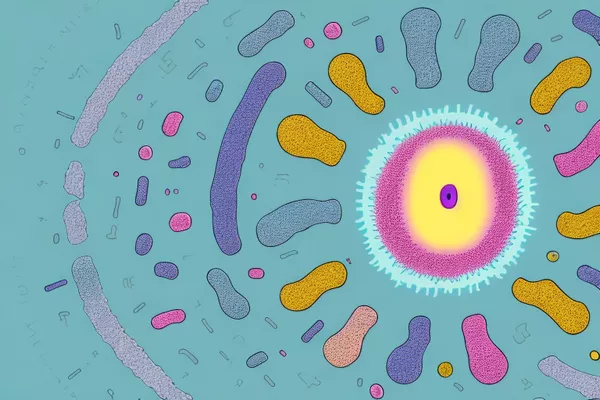Ringworm and hives are two distinct skin conditions, but they can sometimes cause confusion because both involve rashes and irritation. In this article, we will explore what ringworm is, what hives are, and if ringworm can lead to the development of hives. We will also discuss their symptoms, causes, and how to differentiate between the two.
What is Ringworm?
Ringworm, medically known as tinea corporis, is a common fungal infection that affects the skin. Despite its name, ringworm is not caused by a worm. It is caused by a group of fungi called dermatophytes that live on the skin, hair, and nails. The infection typically forms a ring-shaped rash, often red and itchy, with raised edges and clear skin in the center.
Ringworm can spread through direct contact with an infected person or animal, or by touching surfaces contaminated with the fungus, like towels, gym equipment, or carpets. It can affect anyone, though certain factors like a weakened immune system or poor hygiene increase the risk.
What are Hives?
Hives, also known as urticaria, are red, raised welts on the skin that occur when the body releases histamine in response to an allergen or irritant. These welts can vary in size and may appear suddenly. They can be itchy, and in some cases, they may sting or burn. Hives are usually temporary and can last for minutes to hours, though they may persist longer in some cases.
Hives are most often triggered by allergies, but they can also result from infections, stress, medications, or environmental factors. In many cases, the exact cause of hives is unknown, and it can occur for no apparent reason.
Can Ringworm Cause Hives?
In general, ringworm does not directly cause hives. However, there are a few situations where the two might overlap, leading to confusion. Let’s explore the possible connections between ringworm and hives.
1. Allergic Reaction to Ringworm Treatment
One of the most common reasons for hives in someone with ringworm is an allergic reaction to the medication used to treat the fungal infection. Topical antifungal creams or oral medications can sometimes cause side effects, including allergic reactions, which may lead to hives. This is not caused by the ringworm infection itself, but rather by the treatment.
For example, if a person is using a cream with ingredients like hydrocortisone or a certain antifungal agent, their skin may react with hives. If this happens, it’s important to stop using the product and consult a healthcare provider for an alternative treatment.
2. Skin Sensitivity or Irritation
The rash caused by ringworm can be intensely itchy and irritating. In some cases, the scratching or rubbing of the skin can trigger hives or a similar rash. This happens because of the irritation or inflammation that occurs when the skin is scratched. The body releases histamine in response to the irritation, leading to the formation of hives.
Additionally, some individuals may have sensitive skin that reacts more strongly to fungal infections. In such cases, the body might develop hives as a secondary response to the inflammation caused by the ringworm.
3. Coinfection with Other Skin Conditions
It’s possible for someone to have ringworm and another skin condition at the same time. For instance, if a person has ringworm and is also allergic to something in their environment, like pollen or pet dander, they might develop hives as a result of that allergic reaction. This would not be due to the ringworm infection itself, but rather due to a combination of factors affecting the skin.
In these situations, it might seem like the ringworm is causing the hives, but the real cause is the allergic response to an external factor. The presence of ringworm could simply make the skin more vulnerable to other conditions, leading to an increased likelihood of hives.
4. Systemic Reactions
In rare cases, a person with ringworm could experience a more serious, systemic reaction, where the immune system reacts to the fungal infection in a way that causes widespread skin rashes, including hives. This type of reaction is uncommon but can occur, especially in people with weakened immune systems or those who have severe, untreated infections.
In these instances, the immune system may release chemicals like histamine, which can lead to the development of hives as part of the body’s attempt to fight off the infection. However, this is not the typical course of a ringworm infection and requires medical attention.
Symptoms of Ringworm
Ringworm has distinct symptoms that help identify it. These include:
- A ring-shaped rash with raised, red edges
- Clear or normal skin in the center of the rash
- Itchy skin, which can be mild to severe
- Scaly or flaky patches on the skin
- In some cases, blisters or pustules may form around the rash
The rash often appears on areas of the body that are moist or warm, like the groin, feet, or scalp, but it can develop anywhere on the body.
Symptoms of Hives
The symptoms of hives include:
- Raised, red welts or bumps on the skin
- Itchiness or burning sensation
- Swelling of the affected area
- The welts may appear suddenly and disappear within hours
- Hives can vary in size and may merge to form larger areas of raised skin
In severe cases, hives can be accompanied by difficulty breathing, swelling of the lips or tongue, or other signs of an allergic reaction. This type of severe reaction, called anaphylaxis, requires immediate medical attention.
How to Tell the Difference Between Ringworm and Hives
While both ringworm and hives can cause itchy rashes, they are different in several key ways:
Appearance: Ringworm typically forms a circular or ring-shaped rash with clear skin in the center. Hives, on the other hand, appear as raised welts that can vary in size and shape and don’t have a clear center.
Duration: Ringworm can last for weeks if left untreated, while hives usually appear suddenly and disappear within a few hours or days. If a rash persists for a long time, it is more likely to be ringworm.
Location: Ringworm is more likely to appear in areas like the feet, groin, or scalp, though it can affect any part of the body. Hives can appear anywhere on the body, and they often move around or change locations quickly.
If you are unsure whether you have ringworm or hives, it’s a good idea to consult a healthcare provider who can make an accurate diagnosis and recommend appropriate treatment.
Treatment Options for Ringworm and Hives
Treatment for Ringworm
Ringworm is treated with antifungal medications. These can come in the form of creams, ointments, or oral medications, depending on the severity of the infection. Common antifungal treatments include:
Topical antifungals: These are often effective for mild cases and include products like clotrimazole, miconazole, or terbinafine.
Oral antifungals: For more severe cases or when the infection affects the scalp or nails, oral medications like terbinafine or fluconazole may be necessary.
It’s important to continue treatment for the full duration prescribed by your doctor, even if the rash seems to improve, to ensure the infection is completely eradicated.
Treatment for Hives
The treatment for hives depends on the underlying cause. If the hives are due to an allergic reaction, antihistamines are often prescribed to help reduce the itching and swelling. In more severe cases, corticosteroids or other medications may be needed to control the reaction.
If you suspect that a specific medication or substance is causing the hives, it is important to avoid it and consult with your doctor.
Conclusion
In most cases, ringworm does not directly cause hives. However, there are situations where the two conditions may appear together, either due to an allergic reaction to the treatment or due to skin irritation. It’s essential to differentiate between the two in order to treat them effectively.
If you have ringworm and develop new symptoms like hives, or if your hives persist, it’s best to consult a healthcare professional. By understanding the causes and symptoms of both conditions, you can get the right treatment and return to healthy skin sooner.
Related topics


























